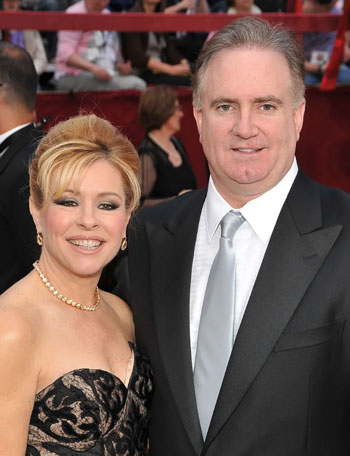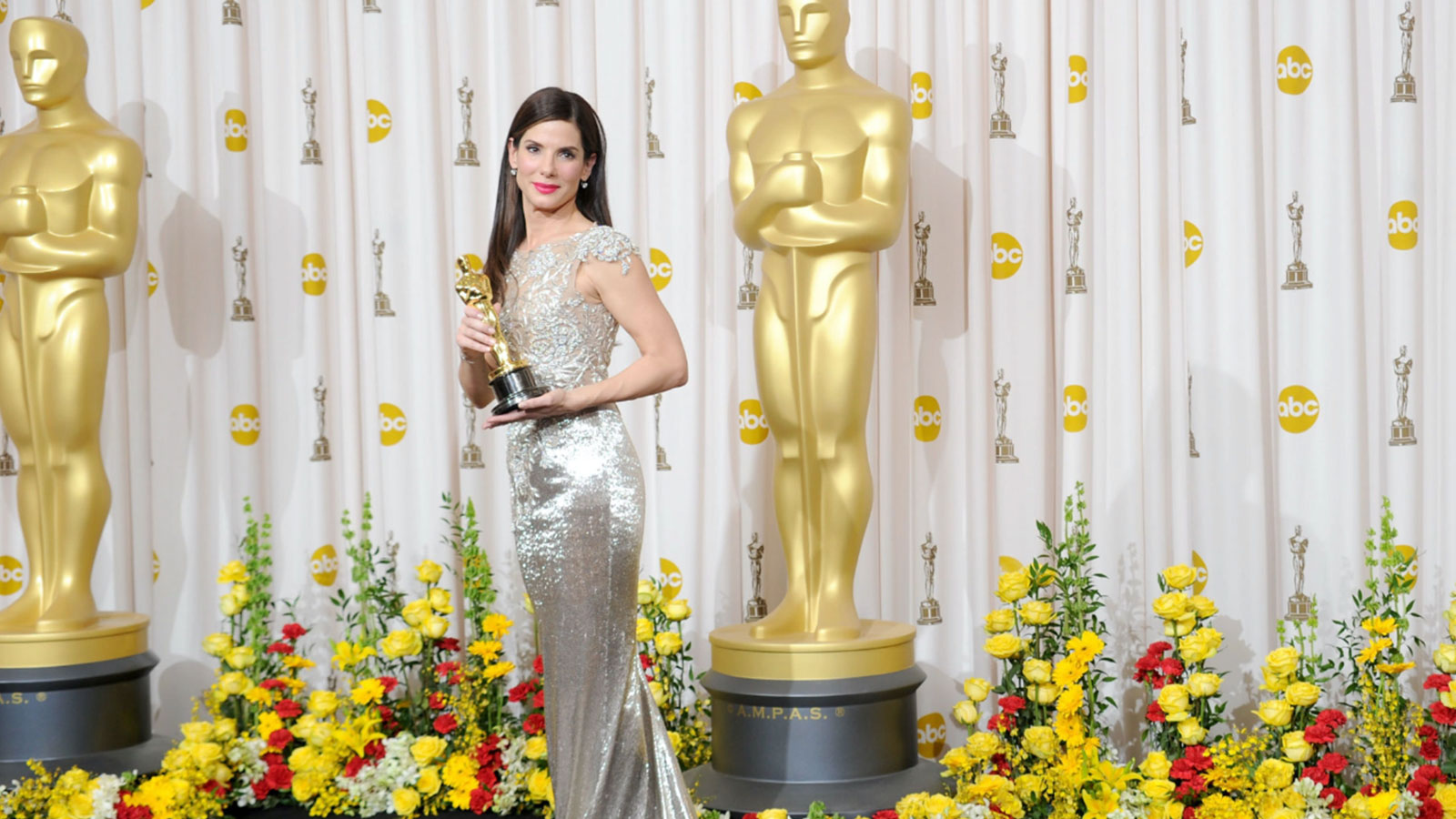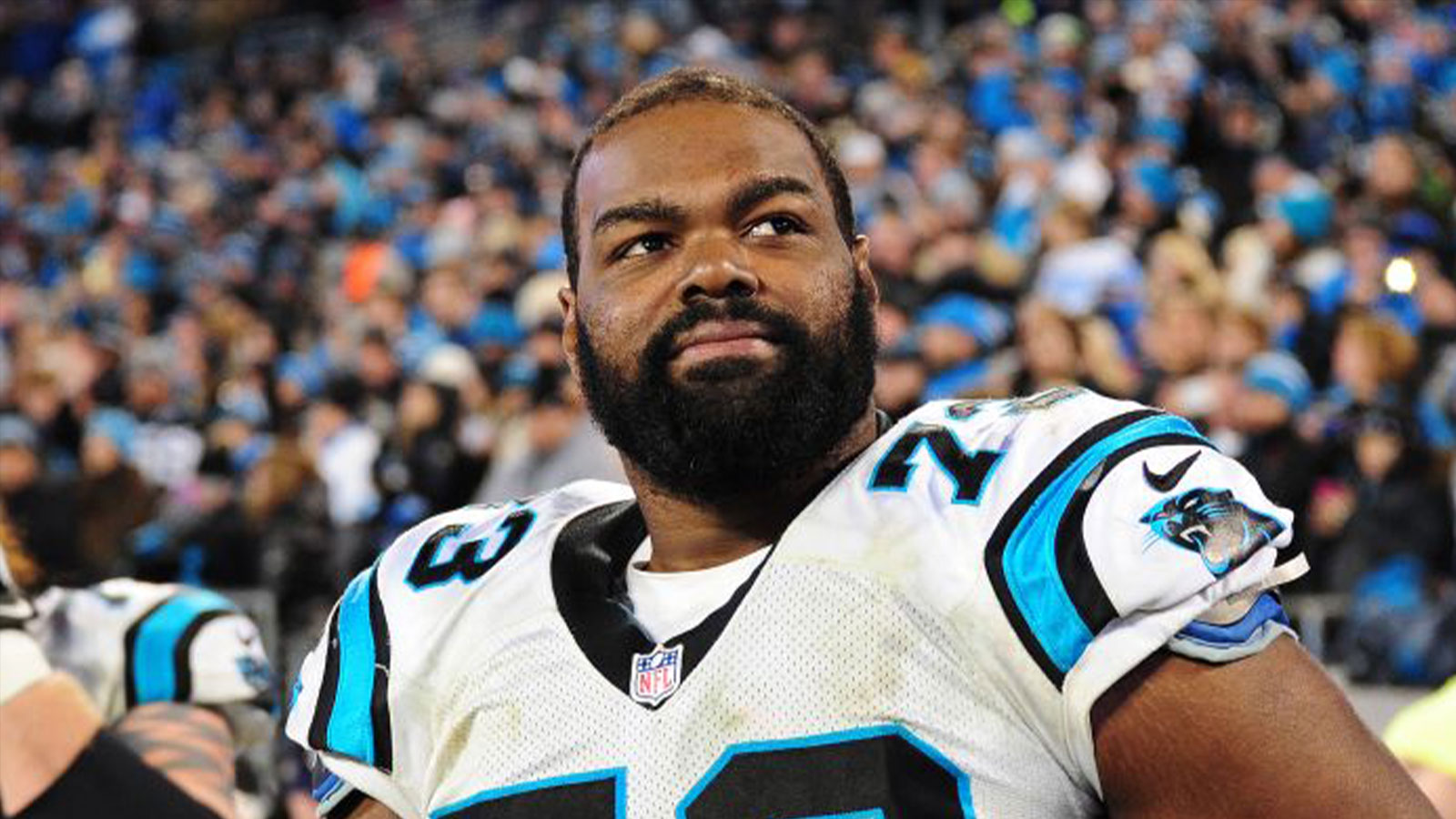Michael Oher says the story of his adoption by a white family was never true and that they exploited him.
The 2009 film The Blind Side tells the story of a white family on a heartfelt mission: to save the life of “Big Mike,” an unhoused Black 17-year-old who attends the local school with their son in Memphis, Tennessee.
As many critics would later note, the tale was a classic “white savior” story that served to praise the goodness of white people and erase the nuances of a Black kid’s story of resilience. But audiences at the time heralded The Blind Side, which was based on a book of the same name, as a tearjerker and the blueprint for a feel-good classic. Plus, it was all a true story, based on the real events in the life of Sean and Leigh Anne Tuohy and Michael Oher, who went on to play eight seasons in the NFL.
The film earned more than $300 million at the box office and was nominated for the Best Picture Oscar, while Sandra Bullock took home the Oscar for Best Actress for her portrayal of family matriarch Leigh Anne Tuohy.
Now, however, Oher, a former NFL player, has alleged that the crux of the story — that a white family adopted him out of homelessness — is a lie and that the family exploited his name and story for years to enrich themselves. Oher says that he believed he was a legal member of the Tuohy family for nearly two decades, only to learn this year that he was not.
According to ESPN, Oher filed a 14-page petition in Tennessee’s Shelby County on Monday, alleging that Sean and Leigh Anne Tuohy never actually adopted him. Instead, the petition alleges, they tricked him into a conservatorship, a legal agreement that gave them legal authority to use his name in business deals, less than three months after he turned 18. The petition claims that the family used Oher, now 37, to make millions of dollars from the popular book and 2009 blockbuster film. He’s now asking that the probate court end the conservatorship and bar the family from using Oher’s name and likeness. The petition also requests that the court seek an accounting of all the money the Tuohys have made since starting the conservatorship in 2004 and to pay Oher his share of the earnings, in addition to damages.
The news has proven shocking to those who continued to hold the movie in high regard. Sean Tuohy told the Daily Memphian that he was “devastated” to hear about Oher’s lawsuit and that it was “upsetting to think we would make money off any of our children.” Sean “SJ” Tuohy, the Tuohys’ biological son, meanwhile, said that Oher was aware of the conservatorship before this year. He also denied making millions off the film, telling the hosts of Barstool Radio that he’s received an additional $60,000 to $70,000 “over the course of the last few years.” He added, “You will never hear me say anything bad about Michael Oher in any capacity other than I’m upset that he feels the way that he does.”
On Tuesday, the family released a statement through their lawyer, Hollywood legal “bulldog” Marty Singer, who is also representing Lizzo and has represented Bill Cosby. The family alleges that Oher demanded $15 million from them, according to TMZ. If they refused to pay it, the statement says, Oher threatened that he would “plant a negative story about them in the press.” The statement also claims that the Tuohys have always been “upfront about how a conservatorship (from which not one penny was received) was established to assist with Mr. Oher’s needs,” including getting health insurance. The family further alleges that this isn’t the first time that Oher has “attempted to run this play.”
Even as the case becomes more complicated by the minute, it is resurfacing many existing controversies around The Blind Side, particularly how it portrayed Oher as unintelligent and completely reliant on the Tuohys, and how it capitalized on viewers’ comfort with white charity and Black suffering. Now, many are pointing out how this new twist has validated longtime uneasiness with the film, showing that the white savior trope remains pervasive and obscures truths about exploitation.
The “chagrin and embarrassment” of Michael Oher’s conservatorship
As the film depicts it, Michael was homeless, ripped away from his drug-addicted mother when he was 7, and navigating the grueling foster system. The Tuohys, to the shock of Leigh Anne’s elite circle of friends, take Michael in and ultimately adopt him. But most of all, they encourage him to play football, setting him up for a career in the NFL.
Oher became an all-American left tackle and, later, a first-round draft pick by the Baltimore Ravens. He helped the Ravens win the Super Bowl in 2013, with Leigh Anne and her daughter Collins typically watching from the sidelines, then signed a $20 million, multi-year deal with the Tennessee Titans in 2014. He was released due to a toe injury before playing for the Carolina Panthers until 2017. Oher’s career ultimately earned him $34 million.
According to Oher’s petition, the star football player only learned the truth of his relationship with the Tuohys this year.
“Michael Oher discovered this lie to his chagrin and embarrassment in February of 2023, when he learned that the Conservatorship to which he consented on the basis that doing so would make him a member of the Tuohy family, in fact provided him no familial relationship with the Tuohys,” the petition states. The petition also revealed that the conservatorship continues to this day, and among Oher’s requests is that the Tennessee court terminates it.
Meanwhile, over the decades, the Tuohys have continued to call Oher their adopted son, using the alleged lie to boost their foundation and other promotional work.

Leigh Anne Tuohy and husband Sean Tuohy are pictured at the 2010 Oscars, where The Blind Side was nominated for two awards, winning one. (WireImage)
A conservatorship is a legal arrangement that cedes a person’s personal, financial, and legal decision-making powers to other people. It is intended to help individuals who cannot care for themselves due to health concerns, such as a brain injury or mental health conditions; the arrangements have been in the cultural conversation with high-profile cases like those of Britney Spears and Amanda Bynes.
Conservatorships can get ugly, particularly when they’re unwanted and when someone isn’t even aware that they’re part of such an agreement. They can be used to disenfranchise and abuse people with disabilities, allowing conservators to take near-full control of life decisions, from where the individual lives to what they spend money on.
“You are entitled as an adult to make decisions about your finances and your property and your medical care. But all states have laws that recognize that some people have diminished decision-making capacity,” Josephine Gittler, a law professor and the co-author of “Reforming Iowa’s Guardianship and Conservatorship System: An Introduction,” told Vox’s Constance Grady. In Tennessee, where the Tuohy conservatorship was arranged, courts may transfer “duties” from “a person with a disability” who doesn’t have the ability to make certain decisions to a conservator.
Oher, however, alleges that the Tuohys had him sign papers to enter into a conservatorship despite him having no physical or mental disabilities rendering him incapable of taking care of his own matters. While he believed the papers made him a legal member of the Tuohy family, under the Tuohy conservatorship, he does not have the power to manage his financial affairs.
Sean Tuohy has defended the conservatorship, arguing that it was originally created to allow Oher to play football at the University of Mississippi, but said that he would be willing to end the conservatorship once and for all.
The legal filing also states that Oher unknowingly signed away the rights to his life story to 20th Century Fox in 2007 when he was 16, according to the New York Times. In the petition, Oher stated that he doesn’t remember signing the contract and that if he did sign it, no one explained it to him.
Sean Tuohy has said that everyone in his family earned about $14,000 each from the movie, while ESPN has reported that the Tuohys and their two birth children each made $225,000, in addition to 2.5 percent of the film’s “defined net proceeds.”
Adding to the confusion this week, author and journalist Michael Lewis, who wrote the book The Blind Side: Evolution of a Game, on which the film is based, told the Washington Post that no one involved in the book earned millions from the movie. “It’s outrageous how Hollywood accounting works, but the money is not in the Tuohys’ pockets,” Lewis said. By his accounting, 20th Century Fox paid $250,000 for the option to make the film, which he divided 50-50 with the Tuohy family. The studio ultimately did not make the movie; a smaller production company eventually produced The Blind Side, for which Lewis said he and the Tuohy family were then paid about $350,000 each. Lewis said Oher began declining his royalty checks and that he believed the Tuohys began depositing royalty checks in a trust for Oher’s son.
The many controversies around The Blind Side
Lewis published The Blind Side in 2006. According to the petition, the Tuohys negotiated a movie deal for the story chronicled in the book shortly after the book’s release. It is unclear whether Oher ever negotiated a life rights agreement with the Tuohys ahead of the publication of the book or film.
The Blind Side film received mixed reviews and also soon found itself at the center of controversy. Critics argued that the portrayal of Oher played into Uncle Tom stereotypes about Black people as submissive to white authority. Many also took issue with the film’s portrayal of the Tuohys as white saviors whose personal charity helped an impoverished Black youth overcome challenges and find his footing and potential.
Meanwhile, Oher wrote in his memoir, I Beat the Odds: From Homelessness to the Blind Side and Beyond, the film portrayed him as “dumb” instead of as a kid “who had never had consistent academic instruction.”

Actress Sandra Bullock, winner of the Best Actress Oscar for The Blind Side in 2010, poses with her award. She played Leigh Anne Tuohy. (Jason Merritt/Getty Images)
Oher has publicly said that the film negatively impacted his career. In 2015, he told ESPN that people make assumptions about him based on how he was poorly portrayed in the film. “People look at me, and they take things away from me because of a movie,” Oher said. “They don’t really see the skills and the kind of player I am. That’s why I get downgraded so much, because of something off the field … That’s why I don’t like that movie.’’
He also said the film brought him too much attention when he just wanted to fly under the radar as an offensive lineman and that it incorrectly portrayed him as a kid who didn’t understand football. Oher wrote in his memoir, “Whether it was S.J. moving around ketchup bottles or Leigh Anne explaining to me what blocking is about, I watched those scenes thinking, ‘No, that’s not me at all! I’ve been studying — really studying — the game since I was a kid!’”
Oher did, however, see some positives in the film, particularly its message about perseverance and in how it portrayed the Tuohy family. “They’re my family and without them I wouldn’t be here,” he said in 2016. “They taught me a lot of things, showed me a lot of different things. It shows that if you help somebody and give somebody a chance and don’t judge people, look where they can get to.”
It’s that trust and respect that he held for the Tuohys that has made the news of the ongoing conservatorship all the more shocking and painful. And it’s the white savior trope that may have allowed the Tuohys to use their assumed benevolence to move through the world unchecked.
As sociologist Matthew Hughey recounts in his book The White Savior Film, the white savior trope derives from old ideas such as “manifest destiny” (the idea that white settlers in America were destined and ordained to expand westward and cultivate America), and the “White man’s burden” (the duty of white colonizers to manage the affairs of those whom they colonize) — beliefs that motivated white people to save the “dysfunctional and dark ‘other.’”
In Screen Saviors: Hollywood Fictions of Whiteness, Hernán Vera and Andrew Gordon explain that white savior narratives often feature a white figure who “saves blacks from slavery or oppression, rescues people of color from poverty or disease, or leads Indians in battle for their dignity and survival.”
Examples abound, from the 1990 western Dances With Wolves to the 2000 urban-set film Finding Forrester to 2011’s The Help. In these movies, white paternalism is portrayed as necessary to better American society and save people of color from themselves. The trope erases and romanticizes racism, and raises questions about the dangerous power white people are able to wield when they’re viewed as saviors. Many of these films, like The Blind Side, have faced their own reckonings.
The tropes don’t just exist on the page or on the big screen. They happen in real life; as NPR noted in 2011, with the film’s success, the Tuohy family was “elevated to near sainthood.” Oher’s petition and the public outcry over his conservatorship are challenging that image.
For his part, Oher has tried to make peace with the Hollywood storyline of The Blind Side by recognizing the film’s positive impact and his role in the narrative. In 2015, he told the AP, “You’d be surprised how many letters I’ve gotten, people have adopted kids or how many lives have changed. I’m definitely excited about that because coming from poverty in the inner city where I come from, so many people look up to me. They say ‘if I can do it, they can do it.’”
Source: Vox
Fabiola Cineas covers race and policy as a reporter for Vox. Before that, she was an editor and writer at Philadelphia magazine, where she covered business, tech, and the local economy.
Featured image: Michael Oher, whose story was depicted in the book and film The Blind Side, is pictured in 2016 on the field in Charlotte with the Carolina Panthers football team. (Scott Cunningham/Getty Images)















